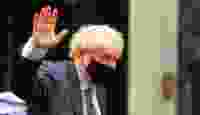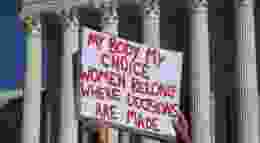
Post-Covid Politics: Time for a rethink?
The response to the Covid crisis has pushed our understanding of social structures and politics to breaking point. Our political understanding cannot be limited to 19th Century definitions, argues Timothy Tennant.
More than any year in living memory does a phrase or motif vie to exemplify 'what just happened?' Trump, Covid, Lockdown, Equality: neither unique to 2020, yet, immortalised by events arising during the spring and climaxing as snow fell upon the Oval Office. To this lexicon add Cancel. The toppling of statues, renaming of streets are synonymous with cultural Marxism. But if we ignore this cosmetic, the political lenses through how we perceive the world are still entrenched in the philosophies of men who lived during an incredibly narrow time span and whom were of an equally limited demographic. It is almost impossible to devise a political strategy or articulate an understanding of power structures without relying on 19th Century European academics. This paradox is exemplified in that Black Lives Matter are founded on the principles of a man whom in terms of ethnicity, privilege and status should be disavowed.
However, our reaction to Covid undermines the legitimacy of conventional political discourse. There has always been a shaky reliance on the duopoly of 'left' and 'right' (a product of the French Revolution), Blue or Red, free market or state economy. Leftists side with fascist Middle-Eastern regimes as testament of faith against British Imperialism. Conversely, Conservatives model themselves as bastions of law yet reduce police numbers to dangerously low levels. The severity and extent of lockdown confuses these contradictions.
It is a Conservative Prime Minister who embodies liberty and laissez faire attitudes to social boundaries who has imposed an unprecedented removal of freedoms. Johnson evokes Churchill, yet his actions bear greater comparison to Cromwell regarding state regulation of human interaction. Cromwell himself is viewed as a patriot and symbol of the right, but his actions were more closely identifiable with authoritarian leftism. Today, right of centre commentators question why small businesses and low-income taxpayers are suffering the brunt of lockdown, when Silicone Valleys wealth multiplies while infringing on liberal discourse aided by 'progressives' such as Nick Clegg. The UN, beacon of hope against nativism, endorses Chinese government social policy and the totalitarian concept that a nations health is inextricably linked to national security.
Such is the sensory overload media generates we digest these issues not as clear narrative but as if haphazardly collecting pieces of an ill-fitting jigsaw puzzle. But certain events help form the vague form of a theme; it might be Glenn Greenwald refusing to remain silent on media collusion during the Biden ascent or politicians endorsing the narrative that lockdown measures are the solution, only to break these restrictions themselves. At the most visual level it is evident in the wearing of face masks and how we associate this with political proclivities.
What now seems lazy framing of politics into sides with sets of values and reference points is being replaced by existential questions about who we are and how we define our role in society. Ideas of freedom of speech, of association and the reality that to embrace our loved ones is to break the law in 2021 are real concerns. Discussions about the economic virtues of Marx or of Scottish Independence feel like abstract indulgences when police are entering people's homes to prevent family members interacting or as suicide rates in school children surge. No political party has grasped this. Naturally it is hard to understand how people might vote when the mist rises over the next year or so.
Yet, it would be erroneous for politicians to ignore the organic nature of how society perceives itself or is capable of cognitive dissonance. Not all Brexit voters were Tories, likewise not all Remainers were Labour, and this loosening of affiliation is evident in the fall of Labours Northern Wall. People increasingly aspire for freedom of expression, freedom of belief and are attuned to the libertarian concept that to impose one's vices upon another is a sin. Conversely, many cling to their mask, place virtue in obedience to the state and frame the adherence to the limitations imposed on us as a moral test.
Despite entering a digital age of technological advancement society increasingly resembles not the world envisaged by those 19th Century academics but something older, closer to that dark period in history from which the enlightenment sprang yet was marked by the most visceral division in British history. Either a great political mind will understand this and attempt to reframe discourse by embracing the values of liberty and human interaction, or Westminster will continue to slide along its trusted path unawares as society reconfigures itself.








